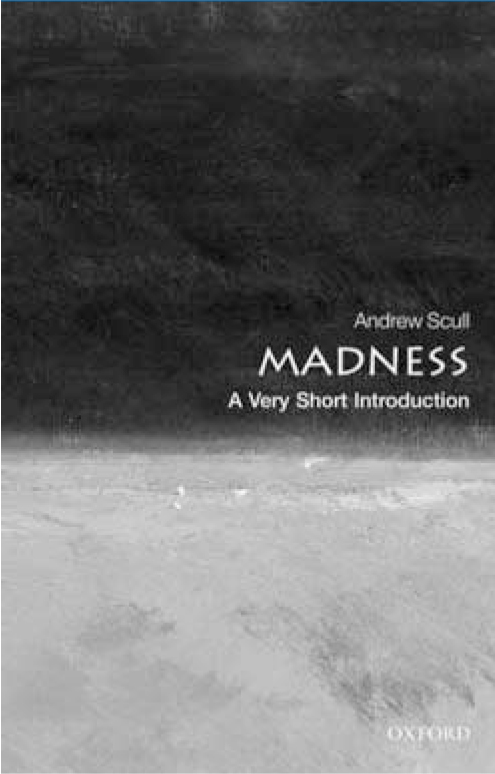
Here, in just over 100 pages, Scull accepts the task of providing a stimulating way into the subject of ‘madness’; a ‘commonsense category, reflecting our culture's… recognition that Unreason exists’.
Stating his aim as engaging with ‘historically and culturally variable responses’ to madness, Scull presents telling material from classical antiquity onwards, notably recounting the dreadful suffering endured by people often seen as problematic to Western civilization. Indeed, Scull's work might be recommended simply for its concise reminder of the administrated violence of the early 20th century, pursued for predetermined ‘good’ ends against the ‘degenerate’ without reference to duties or rights; and of the role that doctors played in this.
However, the central coherence of Scull's commentary is threatened by an attempt to render madness as a unitary concept, across the vast reach of millennia. This problem is illustrated by an early paragraph on the causation of madness, linking medical explanations of ‘the aetiology of our schizophrenias’ to Socrates' comment in Phaedrus that ‘madness is given to us by a divine gift’. Although Scull may not have had space for it here, in Phaedrus madness created by the Gods refers to inspirations that many of us still regard as divine gifts, including love and poetry. The garbled implication that Socrates thought ‘our schizophrenias’ were a gift from the Gods is simply misleading and although Scull goes on to castigate the Diagnostic and Statistical Manual as ‘anti-intellectual’, one may at least reflect that it avoids the conflation of love and schizophrenia.
In fact, the author states his own responses with such relentless strength that they threaten to overwhelm the ‘variable responses’ of history. Psychiatrists are bleakly caricatured as simplistic, money-grubbing dupes and somewhat less predictably the families of people suffering ‘madness’ are also characterised as willing dupes to the drug industry, with their payoff for supporting the benefits of medication apparently in absolution from the guilt formerly heaped on ‘refrigerator mothers’ and the like. There is little hope here and doors to valid commentary are gradually closed on whole groups of deeply interested people, to the point that one is left wondering whether only sociologists, such as Scull, are free enough from false consciousness to guide us through history. Without room for dialogue, Scull's achievement feels less like ‘a very short introduction’ than a very short conclusion.



eLetters
No eLetters have been published for this article.